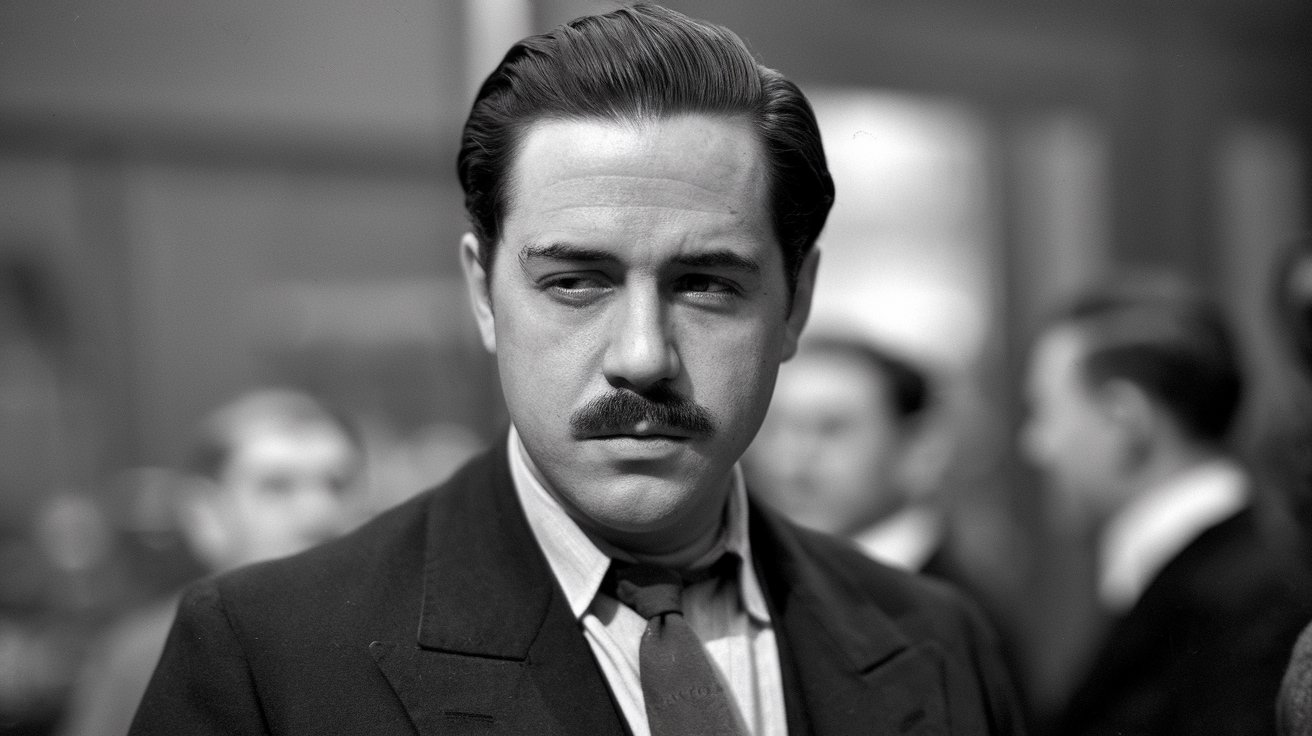
Who was Johnny Lewis? Johnny Lewis, born John Robert Lewis on February 21, 1940, in rural Alabama, was a towering figure in American politics and civil rights activism. From humble beginnings as the son of sharecroppers, he rose to become a key leader in the civil rights movement and later a long-serving U.S. Congressman. Known for his unwavering commitment to nonviolent resistance, Lewis played pivotal roles in historic events like the March on Washington and the Selma to Montgomery marches. His life was a testament to courage, resilience, and the relentless pursuit of justice and equality.
Key Takeaways:
- Johnny Lewis, a civil rights leader, overcame humble beginnings and segregation to become a powerful activist, congressman, and inspiration for future generations through his unwavering commitment to justice and equality.
- Johnny Lewis's legacy lives on through his graphic novels, documentary, and continued influence, reminding us that ordinary individuals can create extraordinary change through nonviolent resistance and dedication to social justice.
Early Life and Aspirations
Johnny Lewis, a name synonymous with civil rights and justice, had humble beginnings that shaped his future activism.
-
Birthplace: Born on February 21, 1940, in rural Alabama, Johnny Lewis grew up in a small community near Troy.
-
Family Background: He was the third of ten children in a sharecropping family, which meant they faced economic hardships and limited access to educational resources.
-
Early Aspirations: From a young age, Lewis dreamed of becoming a preacher. At just five years old, he would preach to his family's chickens, showcasing his early passion for oratory.
Education and Early Influences
Lewis's education and early influences played a crucial role in shaping his path as a civil rights leader.
-
Rosenwald School: He attended a Rosenwald School, a community-supported institution, where his teacher encouraged him to read, sparking a lifelong love for books.
-
Racial Segregation: At 16, Lewis and his family were denied library cards at the local public library because it was for whites only, a stark reminder of the segregation they faced.
-
Exposure to Integration: An uncle took him to Buffalo, New York, at age 11, where he saw integrated schools and businesses, a stark contrast to the segregated South.
-
Inspiration from Martin Luther King Jr.: In 1955, Lewis first heard Martin Luther King Jr. on the radio, profoundly impacting him and leading him to follow King's Montgomery bus boycott closely.
Early Activism and Arrests
Lewis's commitment to civil rights began early, marked by significant events and his first encounters with nonviolent protest.
-
First Public Sermon: At 15, Lewis preached his first public sermon, laying the foundation for his future as a powerful speaker.
-
Meeting Rosa Parks: In 1957, he met Rosa Parks and Martin Luther King Jr., two figures who would greatly influence his activism.
-
Influence of Billy Graham: Evangelist Billy Graham inspired Lewis to pursue his aspirations of becoming a minister, further shaping his path.
-
American Baptist Theological Seminary: After high school, Lewis moved to Nashville to attend the American Baptist Theological Seminary, where he studied nonviolent protest and became involved in sit-ins at segregated public places.
-
First Arrest: In February 1960, Lewis was arrested for the first time during a sit-in at a whites-only lunch counter in Nashville, marking the beginning of his numerous arrests for civil rights activism.
Major Civil Rights Actions
Lewis's activism took him to the forefront of the civil rights movement, where he played key roles in several historic events.
-
Freedom Rides: In May 1961, Lewis volunteered as a Freedom Rider, challenging bus and rail segregation laws. He faced beatings and arrests multiple times during these rides.
-
Chairman of SNCC: In 1963, Lewis was elected chairman of the Student Nonviolent Coordinating Committee (SNCC), leading the organization until 1966 and playing a crucial role in organizing protests and demonstrations.
-
March on Washington: In August 1963, Lewis delivered a speech at the historic March on Washington, standing alongside other prominent civil rights leaders.
-
Freedom Summer: In 1964, Lewis led SNCC’s efforts to register African American voters in Mississippi during the Freedom Summer project, highlighting the lack of voting rights for African Americans in the South.
-
Bloody Sunday: In March 1965, Lewis led a march from Selma to Montgomery, Alabama, which was halted by police violence on the Edmund Pettus Bridge, an event known as “Bloody Sunday.”
Continued Activism and Congressional Career
Despite numerous arrests and physical confrontations, Lewis's commitment to civil rights never wavered, leading to a long career in Congress.
-
Continued Activism: Lewis was arrested more than 40 times during his civil rights activism, showing his unwavering dedication to the cause.
-
Career in Congress: In 1986, Lewis was elected to the U.S. House of Representatives, representing Georgia's 5th congressional district for over three decades.
-
Leadership Style: Known for his leadership style emphasizing nonviolent resistance and community engagement, Lewis believed in empowering local communities to take action for change.
Legacy and Impact
Lewis's legacy extends beyond his lifetime, inspiring future generations through his actions, writings, and continued influence.
-
March Trilogy: Lewis co-authored the March trilogy, a graphic novel series for young adults chronicling his civil rights experiences, earning numerous honors, including the National Book Award in 2016.
-
Documentary: John Lewis: Good Trouble: In 2020, a documentary titled John Lewis: Good Trouble was released, highlighting his life and dedication to nonviolent resistance.
-
Pancreatic Cancer Diagnosis: In December 2019, Lewis announced he had stage 4 pancreatic cancer but continued to serve in Congress until his passing in July 2020.
-
Death and Legacy: Lewis died on July 17, 2020, after a six-month battle with pancreatic cancer. He was the first African American lawmaker to lie in state at the U.S. Capitol Rotunda.
-
Funeral Eulogies: At his funeral at the Ebenezer Baptist Church in Atlanta, Lewis was eulogized by Speaker of the House Nancy Pelosi, James Lawson, and three former U.S. presidents: Bill Clinton, George W. Bush, and Barack Obama.
-
Final Message: In a valedictory essay published by The New York Times on the day of his funeral, Lewis praised the Black Lives Matter movement and urged future activists to continue his legacy of nonviolent resistance.
Symbolic Actions and Continued Influence
Lewis's actions, both symbolic and direct, left a lasting mark on civil rights and social justice.
-
Impact on Civil Rights: Lewis played a pivotal role in organizing key protests and demonstrations, including the March on Washington and the Selma to Montgomery marches.
-
Symbolic Actions: Known for symbolic actions, such as leading a sit-in on the House floor in 2016 to protest inaction on gun control, Lewis demonstrated his commitment to nonviolent means of effecting change.
-
Boycott of Inaugurations: Lewis boycotted the inauguration of President George W. Bush in 2001 and President-elect Donald Trump in 2017, citing concerns over electoral integrity and social justice issues.
-
Criticism from Trump: In 2017, Trump criticized Lewis on Twitter, accusing him of being “all talk” and “no action.” Lewis responded by encouraging donors to pledge money to the Democratic National Committee, emphasizing his commitment to action over rhetoric.
-
Health Issues: In 2018, Lewis became ill on a flight to Atlanta and spent one night in the hospital for undisclosed reasons. He was released the next day with a clean bill of health.
-
Legacy in Congress: Remembered as a champion of civil rights and social justice within Congress, Lewis's leadership and advocacy inspired countless lawmakers and activists across generations.
-
Educational Impact: Through his graphic novels and other educational materials, Lewis aimed to educate future generations about the importance of nonviolent resistance and the ongoing struggle for equality.
-
Continued Inspiration: Even in death, Johnny Lewis continues to inspire activists and leaders worldwide. His legacy serves as a reminder that ordinary people can make extraordinary changes through their commitment to justice and equality.
Remembering a Civil Rights Icon
John Lewis's life was a testament to courage, resilience, and unwavering commitment to justice. From his humble beginnings in rural Alabama to his pivotal role in the civil rights movement, Lewis's journey was marked by significant milestones. He faced countless arrests, brutal beatings, and relentless opposition, yet he never wavered in his fight for equality. His leadership in the Student Nonviolent Coordinating Committee, participation in the Freedom Rides, and his powerful presence at the March on Washington showcased his dedication. Later, as a congressman, he continued advocating for social justice, leaving an indelible mark on American history. His legacy lives on through his speeches, writings, and the countless lives he touched. John Lewis's story reminds us that ordinary individuals can indeed make extraordinary changes. His life encourages us to continue striving for a world where everyone is treated with dignity and respect.
Frequently Asked Questions
Was this page helpful?
Our commitment to delivering trustworthy and engaging content is at the heart of what we do. Each fact on our site is contributed by real users like you, bringing a wealth of diverse insights and information. To ensure the highest standards of accuracy and reliability, our dedicated editors meticulously review each submission. This process guarantees that the facts we share are not only fascinating but also credible. Trust in our commitment to quality and authenticity as you explore and learn with us.


